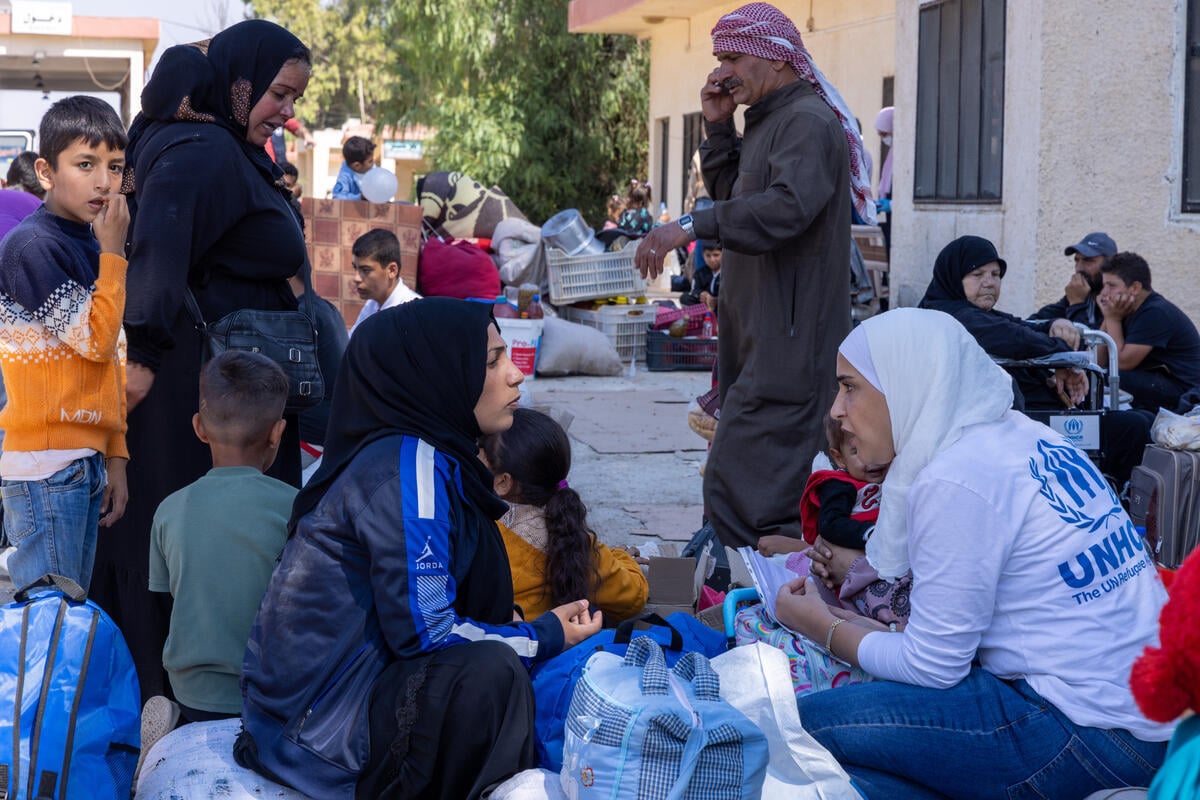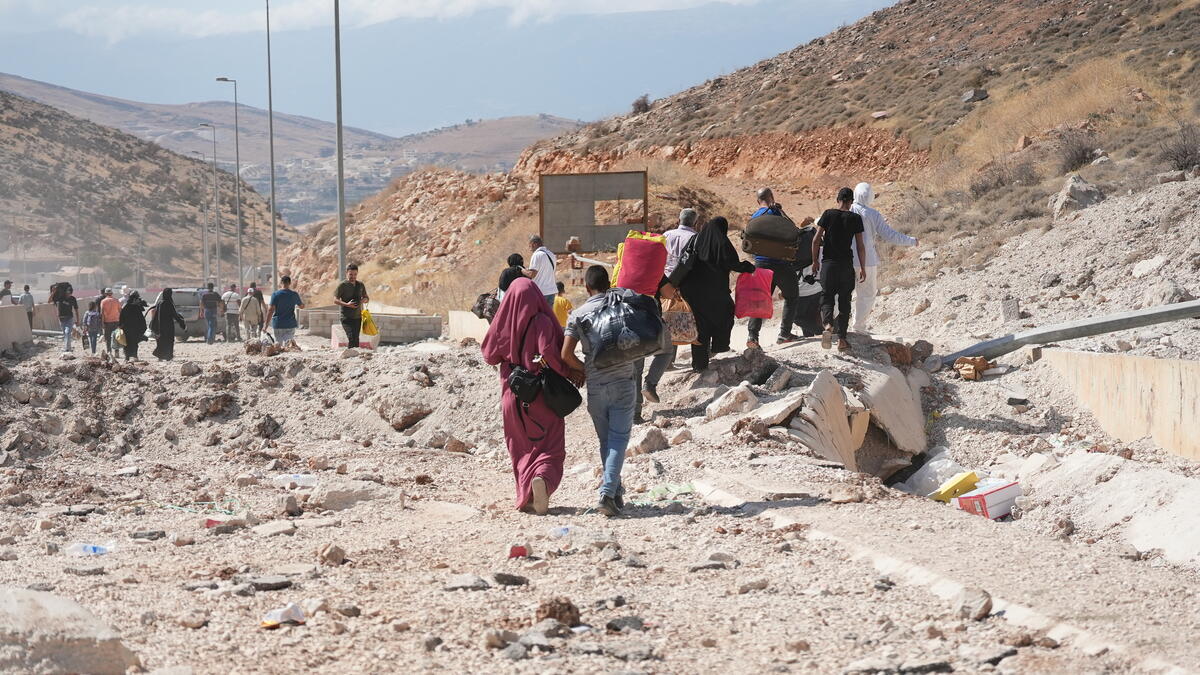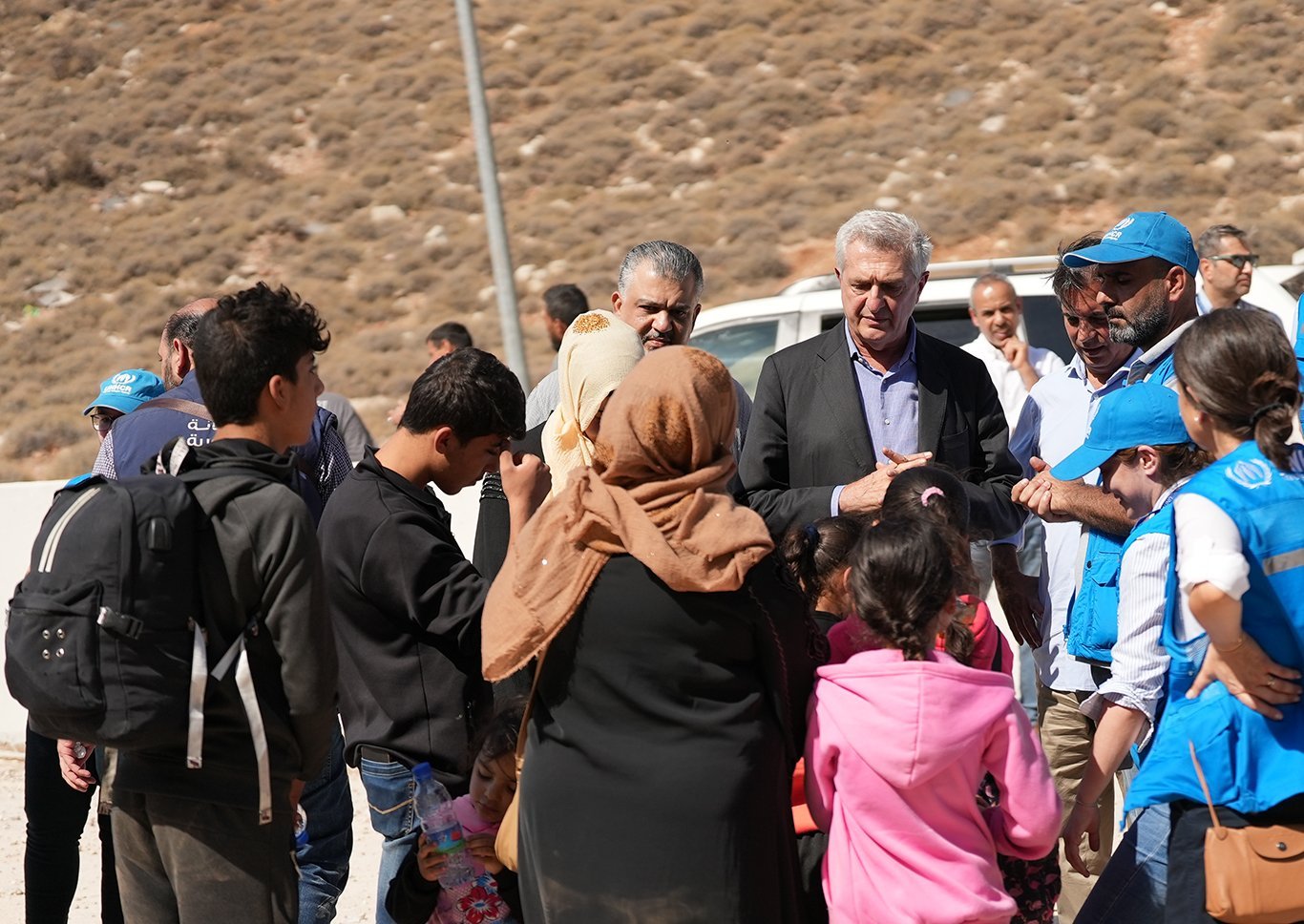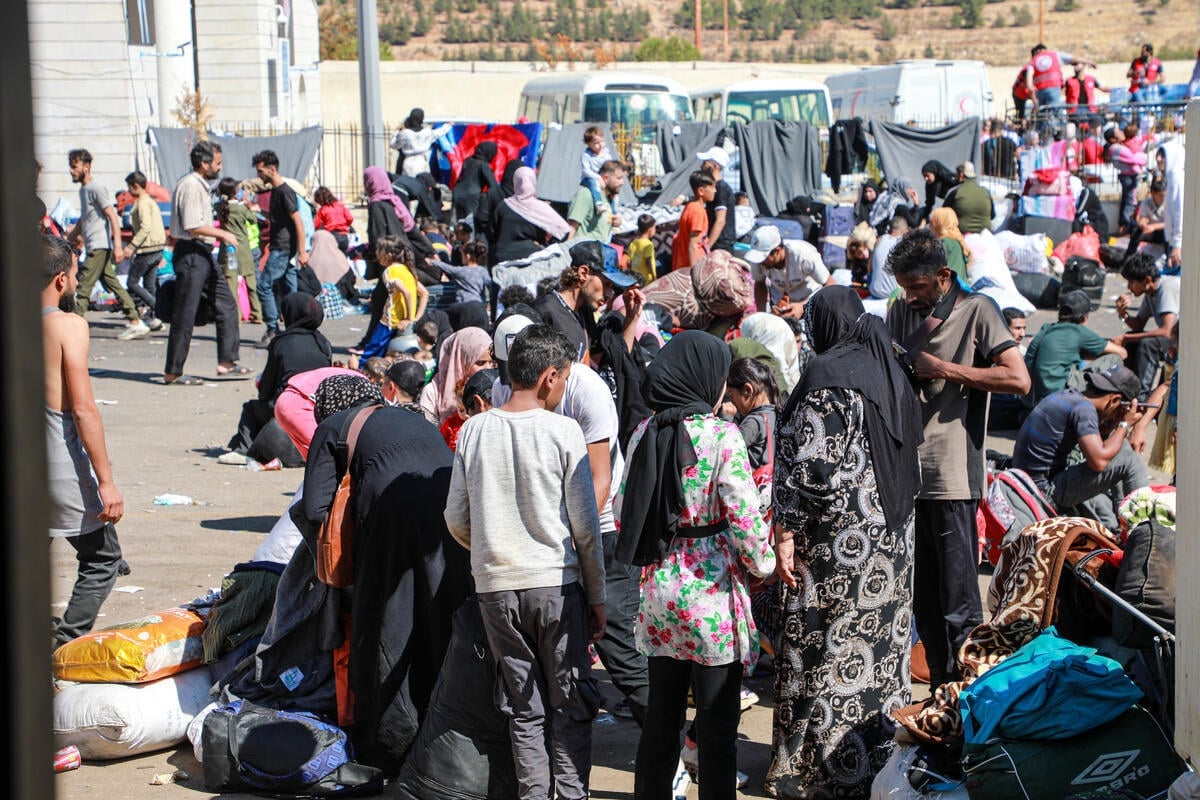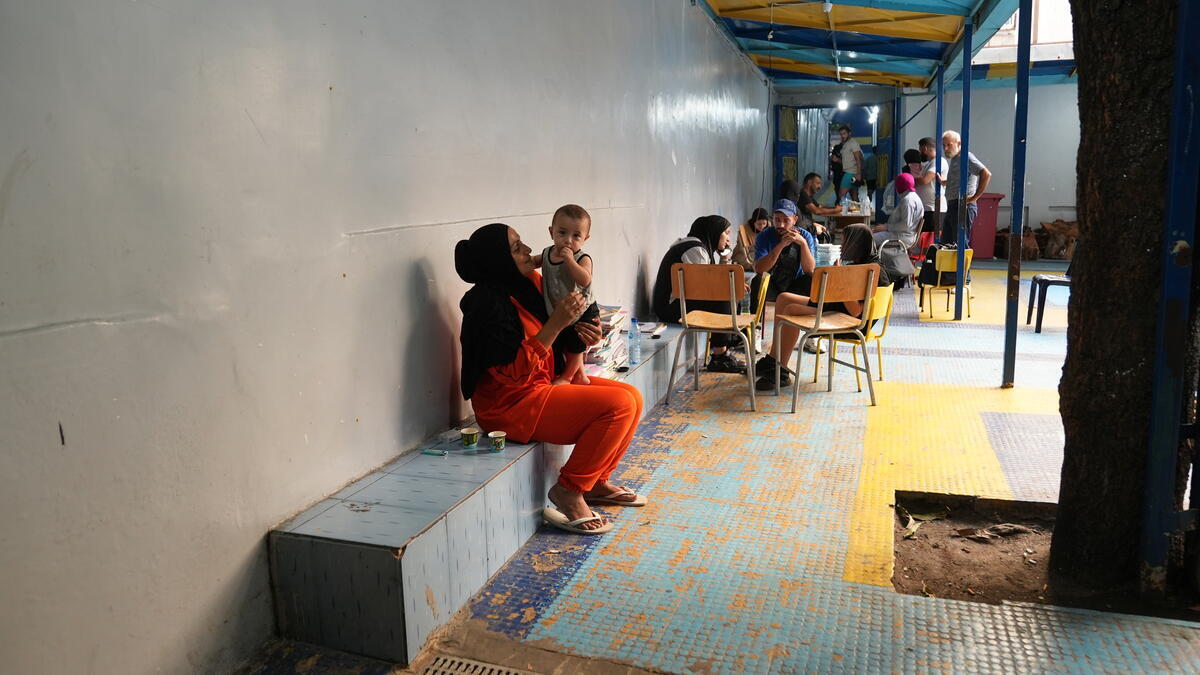UNHCR poll: Iraqi refugees reluctant to return to Iraq permanently
UNHCR poll: Iraqi refugees reluctant to return to Iraq permanently
A recent UNHCR survey of Iraqi refugees living in Syria has found that most are still reluctant to return home on a permanent basis.
The survey was carried out at the Al Waleed border crossing between Syria and Iraq, in July and August. Of 498 families, representing more than 2000 individuals, 46 percent cited political uncertainty, while 15 percent blamed unstable security conditions. A further 13 percent said they are holding back because of poor educational opportunities, and six percent cited housing shortages.
Most people crossing the border - 89 percent - said it was for a short trip only. In 42 percent of cases this was for visiting family members, 18 percent said they were checking conditions on the ground, 15 percent to obtain documentation, and 10 percent to check on property.
A similar survey on the Iraq-Jordan border among some 364 families (representing approximately 1450 individuals) found that none were returning to Iraq permanently. Similar reasons were cited.
Syria hosts the largest number of Iraqi refugees in the region. Since the start of the war in Iraq, UNHCR Syria has registered over 290,000 Iraqis. Some have since been officially resettled, others departed to third countries by other means; some have decided to return to Iraq, most of them spontaneously and, in few cases, with limited assistance from UNHCR. Most, however, remain in Syria. As of end of August 2010, the population of Iraqi refugees registered with UNHCR stands at 153,042.
Demand for registration by Iraqi refugees in Syria has increased during the past 5 months, with an average of 1,900 people requesting registration appointments every month since the beginning of the year.
Since May, this figure has risen dramatically to a peak of 3,500 in August. The majority of Iraqis requesting registration came from Baghdad and Ninewa Governorates, recognized as being particularly dangerous in UNHCR guidelines.
Syria has been a generous host to Iraqi refugees. Over 70% (or 110,000) of the Iraqi refugees currently registered in Syria have lived there for over four years. Although many Iraqi refugees left Iraq with some savings, after years of exile, these savings have run out. As a result, refugees rely on food and financial assistance from UNHCR to sustain themselves and their families.
Approximately 41% of all registered Iraqis in Syria are considered "vulnerable" and in need of assistance. 34,000 suffer serious medical conditions while 9,000 or 9% of the refugee population are classified as 'women at risk'.
UNHCR does not consider the security situation in Iraq adequate to facilitate or promote returns. We nonetheless continue to assist refugees who voluntarily express their wish to return, in close coordination with the Iraqi authorities.
The number of refugees who return permanently to Iraq has been very low with UNHCR having supported 163 to return to Iraq from Syria since the beginning of 2010. According to Iraqi government statistics, only 18,240 Iraqi refugees returned from exile from January 2010 to August. This represents 20 percent of the total returns of 89,700 in the same period, including internally displaced persons.
The on-going violence in Iraq has resulted in large scale internal and external displacement of the Iraqi population. Over 1.5 million people remain displaced within the country while hundreds of thousands of people are still living as refugees in neighbouring countries, mainly in Syria and Jordan.


